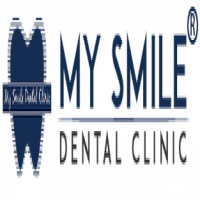How to Deal with Braces and Jaw Pain

Strong 8k brings an ultra-HD IPTV experience to your living room and your pocket.
Getting braces is an exciting step toward a straighter, healthier smile, but let’s be honest — the journey isn’t always completely comfortable. One common complaint from people with braces is jaw pain. If you’re experiencing soreness or tightness in your jaw, you’re definitely not alone.
Fortunately, there are several ways to ease the discomfort and keep your orthodontic treatment on track. Let’s dive into why jaw pain happens with braces and the best ways to manage it.
Why Do Braces Cause Jaw Pain?
Braces work by applying continuous, gentle pressure on your teeth and jaw to gradually move everything into the right position. While this pressure is necessary for realignment, it can also cause temporary soreness in your teeth, gums, and jaw joints (also known as the temporomandibular joints or TMJ).
Here are a few common reasons you might feel jaw pain during braces treatment:
Teeth shifting: As your teeth move into new positions, the jaw has to adapt, which can create temporary tension.
Bite adjustments: If you have a major bite correction happening (like fixing an overbite or underbite), your jaw muscles are adjusting to a new, unfamiliar alignment.
Tightening appointments: After adjustments or the addition of rubber bands, it’s common to experience a few days of discomfort.
TMJ irritation: In rare cases, braces can temporarily aggravate TMJ disorders if the bite changes put stress on the jaw joint.
Tips to Manage Jaw Pain with Braces
The good news is that jaw pain from braces is usually temporary and manageable. Here are some practical ways to find relief:
1. Use Orthodontic Wax
If brackets or wires are irritating the inside of your mouth or affecting how you bite, orthodontic wax can be a lifesaver. Apply a small piece over any bracket that’s causing discomfort to reduce irritation and prevent additional tension on the jaw.
2. Eat Soft Foods
When your jaw feels sore, the last thing you want to do is chew hard, crunchy foods. Stick to softer meals like soups, mashed potatoes, yogurt, smoothies, and scrambled eggs until the discomfort eases. Giving your jaw a break from heavy chewing can make a big difference.
3. Apply Warm Compresses
A warm compress or heating pad applied to your jaw area can help relax the muscles and ease soreness. Try using a warm (not hot) cloth for about 15-20 minutes at a time, a few times a day if needed.
4. Massage Your Jaw
Gently massaging your jaw muscles can promote blood flow and reduce tension. Use your fingers to make small, circular motions along the sides of your jaw and just in front of your ears. Be gentle — you’re aiming to relax the muscles, not create more soreness.
5. Stay on Top of Pain Relief
Over-the-counter pain relievers like ibuprofen (Advil) or acetaminophen (Tylenol) can help manage inflammation and discomfort. Always follow the dosage instructions and check with your orthodontist or doctor before taking any medication regularly.
6. Practice Jaw Exercises
Simple jaw stretches and exercises can sometimes help relieve tightness and keep the jaw moving comfortably. Your orthodontist may recommend specific exercises, especially if you already have mild TMJ issues.
One simple exercise: open your mouth slowly and wide, then close gently. Repeat 5–10 times, but stop if you feel sharp pain.
7. Follow Your Orthodontist’s Instructions
If your orthodontist gives you rubber bands, bite blocks, or other appliances, wear them exactly as directed — even if they feel awkward at first. These tools are critical for properly aligning your bite, and using them correctly can speed up the adjustment process (and shorten the period of discomfort).
When to Contact Your Orthodontist
While some soreness is normal with braces, you should call your orthodontist if:
- Jaw pain is severe or getting worse
- You hear popping or clicking sounds that are painful
- You have difficulty opening or closing your mouth
- The discomfort doesn’t improve after a few days
Your orthodontist can check your braces to make sure everything is working properly and adjust your treatment plan if needed.
Jaw pain during orthodontic treatment can be frustrating, especially when you're adjusting to new braces. A trusted orthodontist in Andheri can help manage this discomfort with personalized care plans, timely adjustments, and techniques that ease pressure on the jaw—making the journey to a healthier, aligned smile more comfortable.
Jaw pain during braces treatment can be uncomfortable, but it’s usually a sign that progress is happening. With some patience, self-care, and good communication with your orthodontist, you can manage the discomfort and stay focused on the end goal — a beautiful, healthy smile that’s totally worth it.
Hang in there — every little adjustment today brings you one step closer to your dream smile!
Note: IndiBlogHub features both user-submitted and editorial content. We do not verify third-party contributions. Read our Disclaimer and Privacy Policyfor details.


